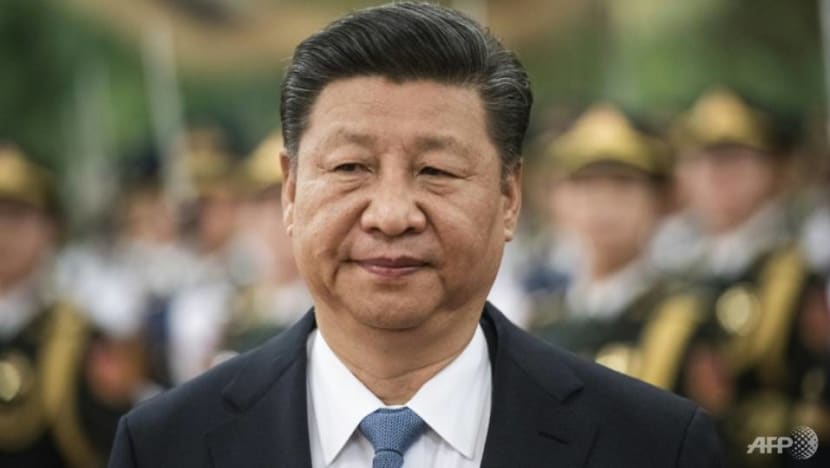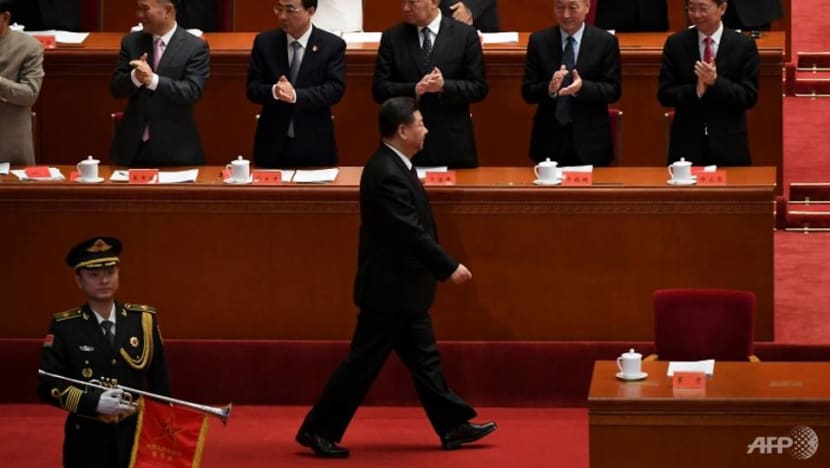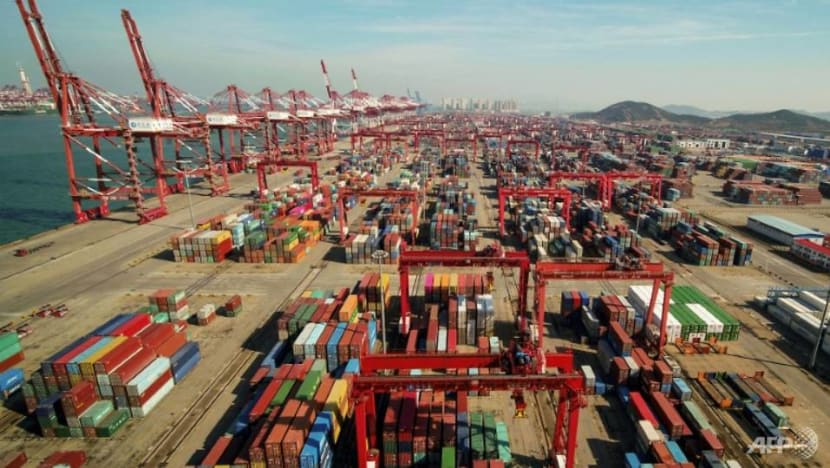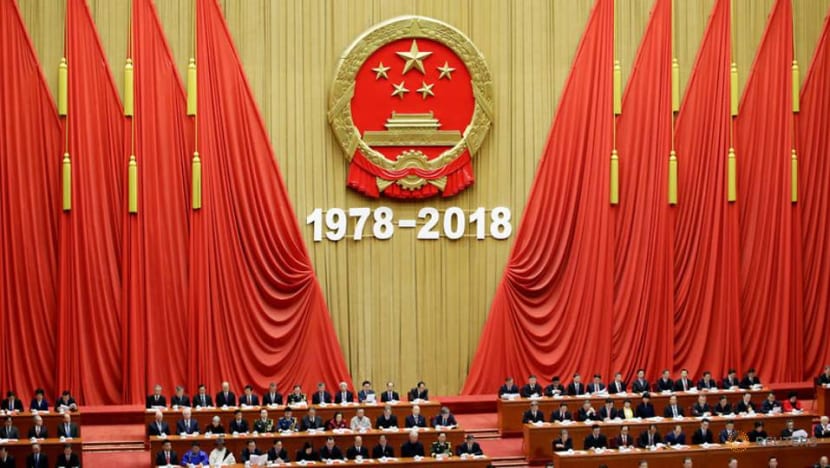commentary Commentary
Commentary: No, Xi Jinping’s speech wasn’t about the US or Donald Trump
China, the Chinese government and many Chinese citizens are not “Trump obsessed”, says Tom McGregor.

China's President Xi Jinping is facing pressure from the US-China trade war and a slowing economy. (AFP/FRED DUFOUR)
BEIJING: Tis the season for creative interpretations of Chinese President Xi Jinping’s speeches.
On Tuesday (Dec 18), China’s top leadership celebrated the nation’s 40 years of economic reforms and opening up to the world, which had played a crucial role in the country’s economic miracle and emergent rise in global affairs.
China’s state-owned media had set aside a Special Reports page on their respective Chinese-language and foreign language sites including English.
Coverage no doubt had been positive. News reports carried highlights of President Xi’s speech, delivered at the Great Hall of the National People’s Congress in Beijing, where the towering figures of Chinese tech titans, renowned artists and sportsmen, including Alibaba Group founder Jack Ma, e-commerce platform JD.com founder, Liu Qiangdong and Yao Ming were in attendance at this momentous occasion.
READ: No one can 'dictate' to China what it should do: Xi Jinping, a commentary
NOT ABOUT TRUMP
The grand event had been heralded as a prime opportunity for Xi to frame China’s remarkable achievements while outlining Beijing’s plans for the future. Yet, observers were also closely watching for Xi’s comments addressing the brewing US-China trade war and growing geopolitical rivalry, as well as China’s slowing economy.
They were all sorely disappointed. Not only did Xi’s speech not make any reference to the US or US President Donald J Trump, Xi himself struck a balanced tone to emphasise that China “poses no threat to any country” and “oppose hegemonism and power politics”.
That didn’t stop many American media outlets from running alarmist headlines that drew direct links to the US-China relationship and overreached.
READ: America, China and the art of confrontation, a commentary
China, the Chinese government and many Chinese citizens are not “Trump obsessed”. They do not feel a burning desire to pay attention to the unfolding melodrama over Donald Trump and his everyday antics at the White House, 24/7, which are of little consequence to their lives.
In this context, it is useful to keep in mind the likely audience Xi was speaking to are Chinese, not American decision-makers.

It might come as a surprise but whether the Trump administration succeeds or fails does not concern many ordinary Chinese citizens who are more concerned about ensuring the US-China trade talks conclude with a win-win deal or for Xi to figure out another way to maintain China’s continued growth and development if not.
ROADBLOCKS TO TRADE WAR SOLUTIONS
Many regular Chinese welcome the reprieve from the China-US trade truce, though they have remnant concerns about what expectations belie the time-out.
If the truce is temporary and will only last 90 days, is it reasonable for the US to expect sweeping reforms concerning market access, intellectual property rights, industrial policies and economic regulatory reforms in this short span of time – if that is what is needed to make progress in the US-China trade talks?
And if China presses on with these measures, would these not cause shocks to the Chinese economy?

Many Chinese remember the cautionary tale of the Soviet Union’s downfall when the country was brought to its knees by an aggressive pursuit of Perestroika, a series of economic reforms that loosened control of state enterprises, peeled back trade restrictions and unleashed free market economics on a communist state.
Beijing and the Chinese people have not forgotten those lessons about the fall from grace by a superpower and certainly do not wish to jeopardise China’s growth trajectory at this crucial inflexion point of their nation’s history.
There is much at stake when the 90-day deadline ends before the start of the two sessions of the National People’s Congress (NPC) and National Committee of the People’s Political Consultative Conference (NPPCC) which convene in March – sessions in which lawmakers will meet to introduce, debate and approve new laws.
What this might also mean is that China’s ability to compromise and tackle legislation needed to meet the US’s demands might be hamstrung, and a full resolution is unlikely by the 90-day timeline even if there is political will to push through these changes.
READ: China embarks on second round of soy buying post Trump-Xi truce
MIND THE GAP
Back to Xi’s speech. Xi’s speech is intended to highlight to his people that China will press on with its longstanding direction of reform and opening up, and assure them that Beijing will set the terms, pace and time of their choosing and not be beholden to pressure from any other country or external forces.

It’s a claim reasonable for any sovereign government to make, in line with decades of Chinese leaders asserting the importance of mutual respect and non-interference in the internal affairs of countries, and a timely reminder given the huge stress the country has come under as growth slows.
Meanwhile, one hopes that if China does agree to undertake the dramatic moves needed to narrow the trade imbalances between the US and China, President Trump will look favourably on such actions and strongly consider granting another extension of the trade truce next year, adding another 90 to 180 days to it.
That kind of a request for an extension would be more than reasonable, when China is shifting gears to fix a much more complex US-China trade conundrum.
Tom McGregor is a commentator on Asia-Pacific affairs based in Beijing.














